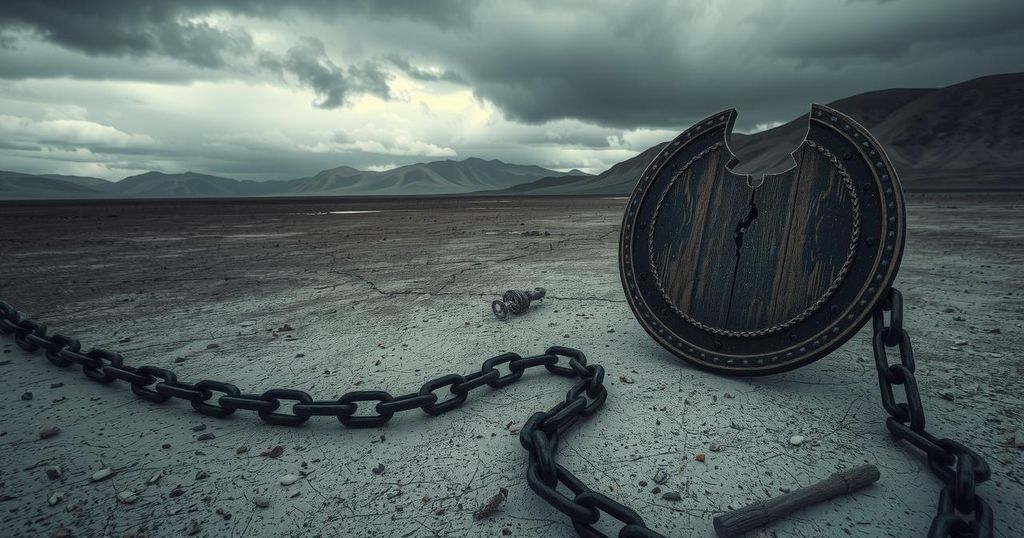Violence has erupted in Goma, DRC, as the M23 rebel group captures the city, exacerbating the humanitarian crisis in mineral-rich eastern Congo. The DRC government has cut ties with Rwanda, accusing it of supporting the rebels. Many casualties have been reported, with hospitals overwhelmed and thousands displaced, prompting urgent calls for peace amid rising regional tensions.
Violence has escalated in the Democratic Republic of Congo (DRC) as a rebel coalition, primarily led by the M23 group, has taken control of Goma, the largest city in the mineral-rich eastern region. This takeover follows the group’s earlier captures of nearby towns and has raised concerns about further destabilization amid a deepening humanitarian crisis. The DRC government has acknowledged the presence of rebels in Goma but has yet to confirm their full control. Diplomatic tensions have heightened as the DRC severed ties with Rwanda, alleging support of the rebels by Kigali, which remains unacknowledged publicly.
The fighting has resulted in significant casualties, including the deaths of multiple South African peacekeepers as they and local military forces confront the advancing M23 coalition. Hospitals in Goma are overwhelmed with casualties, and accounts of severe human rights abuses, including sexual violence and looting, have emerged. The unrest has displaced many residents, adding to the existing humanitarian strain on the region.
Goma, home to roughly two million people, is strategically crucial due to its airports, proximity to Rwanda, and significant mineral resources, including coltan, essential for electronics. The M23 group claims to aim for the liberation of Goma’s residents, yet its actions have led to a history of alleged war crimes. Analysts note that control of Goma could symbolize the M23’s dominance over the eastern DRC.
The conflict has deep historical roots, tied to decades of militia violence and complex ethnic relations involving Rwandophone communities. Reports indicate that Rwandan forces may exceed M23’s numbers, posing a broader threat to regional security. The external dimension of the conflict adds danger, with accusations exchanged between DRC and Rwanda regarding support of local militia factions.
In light of these tensions, East African leaders plan a summit to address the ongoing crisis, amid calls for peace. Previous attempts at reconciliation have yielded limited results, and experts suggest that a sustainable resolution requires significant changes within the DRC’s governance and economic control.
The ongoing conflict in the eastern DRC is part of a long-standing issue involving armed groups, regional tensions, and competition for lucrative mineral resources. Historically, the DRC has faced repeated insurgencies, with the M23 group emerging as one of the most significant rebellions against the government since its resurgence in 2022. The area is rich in minerals like coltan, which plays a crucial role in the electronics industry. Regional dynamics, particularly involving Rwanda, complicate the situation further, as allegations of cross-border support for rebel groups have led to heightened tensions between the two nations. Violence between government forces, various rebel factions, and the civilian population has caused significant humanitarian crises, displacing thousands and creating urgent needs for aid and resources. Political rivalries and ethnic divisions continue to fuel this prolonged conflict, threatening regional stability.
The situation in Goma underscores the complexities of the DRC’s long-standing conflicts, marked by the interplay of local grievances, regional interventions, and humanitarian crises. As the M23 coalition expands its control, the implications for governance, human rights, and international relations remain severe. The urgent need for a durable solution, addressing both security and developmental challenges, is critical to alleviating the ongoing suffering of affected communities and preventing further escalations in violence.
Original Source: www.cnn.com






